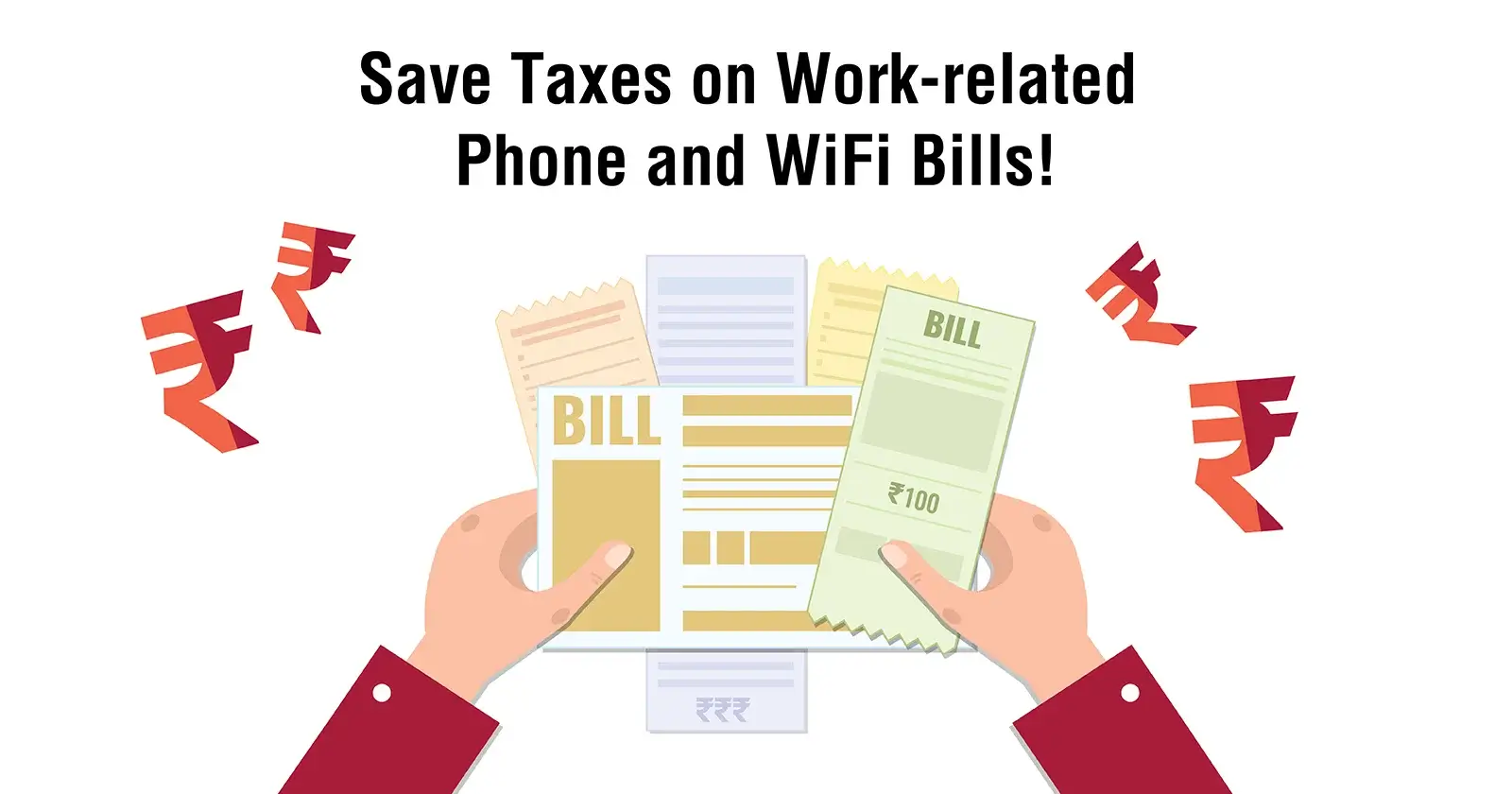Employers often reimburse employees for the expenses incurred by them in the delivery of their services. For instance, employers might reimburse official travel bills or pay for the food consumed during such travel. One of the most common reimbursements these days is the phone and internet bill reimbursement which allows employees to claim the money they spent on their phone and data networks as part of their official duty from their employers.
While this reimbursement is usually not part of the official salary structure or the cost-to-company laws, it is still considered an income for the employee. However, its tax treatment depends on the company’s structure as well as the actual amount received in the form of reimbursement.
Generally, telephone reimbursement provided to employees is not taxable according to Rule 3(7)(ix) of the Income Tax Act. If your office work demands a mobile/telephone/internet connection, you can claim a 100% exemption on the billed amount.
Phone bill reimbursement includes:
- Both telephone and mobile phone bill reimbursements.
- This amount can also include payments made for mobile internet or home Wi-Fi if you tend to work from home a lot.
- However, the actual scope of reimbursement offered could differ across companies and even among different departments in the same company depending on the demands of the job.
As a thumb rule, official expenses on telephones, including mobile phones paid by the employer on behalf of the employee, are not taxable. The law does not prescribe any limit, but the expenses should be reasonable and usually take into account the salary/ grade of the employee.
Conditions to Be Considered
However, the following conditions are to be considered in this regard:
- The telephone connection covers both landline and mobile connections.
- There is no specific reference to the maximum number of connections allowed. Organisations typically allow one landline and one mobile connection.
- The connections have to be in the name of the employee.
- Employees should present telephone bills to their organisation while claiming telephone reimbursement
- Expenses incurred towards both prepaid and postpaid mobile connections are allowed for tax exemption
For example, IT Professionals, employees in the sales function, HR, Middle Management, etc can claim this exemption if their employers are providing this reimbursement. While some employers may demand proofs in the form of bills and receipts to segregate official calls from personal use while giving the reimbursement, others may utilise their averages to calculate the actual amount.
However, it must be noted that even though the Income Tax Act doesn’t specify a limit for exemption through these reimbursements, most employers do have a cap which could be around ₹2,000 per month as the maximum reimbursement offered to employees for phone and internet bills.
Other Tax Exemptions for Salaried to Save Taxes
Apart from work-related phone and WiFi bills the following tax exemptions can be used by salaried individuals to save taxes:
1. Standard Deduction
All taxpayers can deduct ₹ 50,000 from their gross income, thereby lowering their gross income by a flat amount of ₹ 50,000. As an example, if a taxpayer earns ₹ 8 lakh in gross salary, the standard deduction reduces this by ₹ 50,000 to ₹ 7.5 lakh.
2. Leave Encashment
Every salaried employee is entitled to leaves like casual, sick, earned or annual. Most of these leaves can be carried forward to the following years if the employee does not use them.
Many enterprises and all government organisations allow an employee to carry these leave days forward up to their retirement or resignation. If such a facility exists, it is likely that at resignation or retirement you will be eligible to give the leave days back to the company and earn money instead.
This amount received as compensation for leave days accumulated is called leave encashment. This amount is taxable as salary, however, employees may be exempt from paying taxes on it under certain conditions.
Suggested Read: Leave Encashment: Tax Exemption under Section 10(10AA)
3. Food Coupon or Voucher
In some cases, employers pay a food allowance during working hours or via prepaid food vouchers and coupons. In most cases, the vouchers and coupons are not transferable and tax-exempt up to a maximum of Rs 50 per meal or Rs 26,400 annually, assuming 22 working days per month and two meals per day.
4. Company Leased Car
Your company may provide you with a car for work (which could also include personal use) or you might opt to lease a vehicle.
If you use the company-owned vehicle, based on the actual lease rent, driver's salary, maintenance expenses, and fuel expenses borne by the employer, you will have to pay tax on a perquisite of Rs 2,700 per month if the engine capacity is up to 1,600 cc, or Rs 3,300 per month if the engine capacity is over 1,600 cc.
In contrast, leasing a car is more tax-efficient and advantageous. EMIs are paid by your employer to the leasing company, and they are deducted from your salary, reducing your taxable income. After 3-4 years, when the car is actually owned by the employee, the company usually provides the employee with an option to purchase the car at market value when the car is actually owned by the employee. In this case, the employee saves not only the tax deduction benefit that they receive up to this point, but also the down payment and maintenance costs for the purchase of the car.
5. Uniform Allowance
This allowance has no limit, and the cost of uniforms worn during their office working hours is exempt from income tax. The employee must provide the actual bill to claim this allowance. There is no set uniform for employees, as offices have a dress code that requires employees to wear formal attire. In such cases, employees who buy formal clothes for office wear can claim uniform reimbursement depending on the dress code of the office.
Don't limit yourself here. Our trusted financial experts can help you save more tax by bringing in their vast knowledge about various tax-saving investments.
Connect with a trusted financial expert today!





Comments